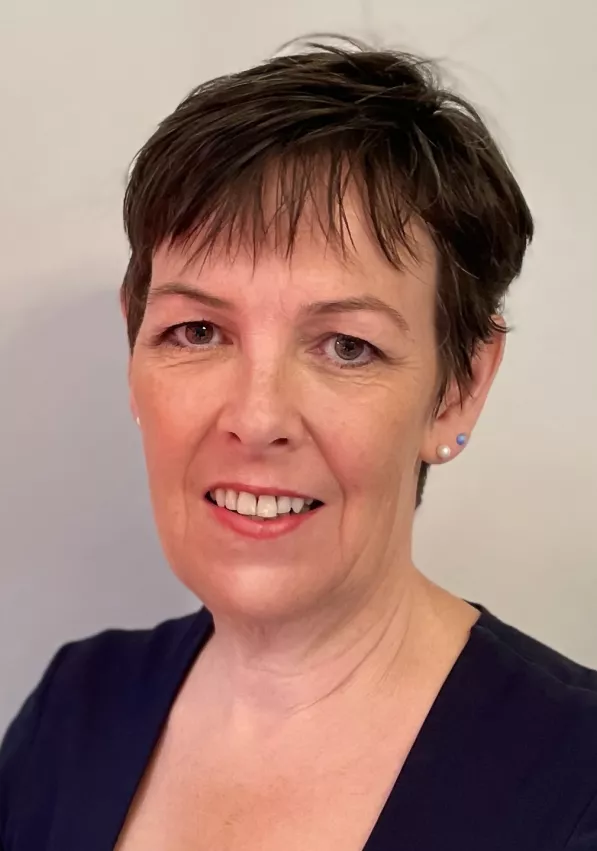As I start my VP journey here at the College, I am delighted to share some good news in my first blog.
I returned from a welcome summer break to receive the news that RCPCH Progress+, the College’s response to Shape of training, has been approved by the General Medical Council (GMC). I feel very privileged to be part of this. In part, it was my enthusiasm for the curricular reforms that encouraged me to stand for this role.
It is a testament to the hard work of the RCPCH Quality & Standards team and David Evans before me that the GMC described the submission as detailed and well thought out. Huge congratulations to all involved!
However much the team and I might live and breathe the changes, I think that for many of you there is less certainty of what Progress, Progress+ and Shape of training mean, and maybe there is a sense that the changes are a bit relentless! I really believe that Progress+ will result in a training programme fit for the needs of our children and young people. And, we want to bring you all with us on the journey.
With the approval by the GMC and now certain rollout from August 2023, we know that there is work to do with implementation. At this stage, I just want to go over the basics and put Progress+ into context.
The history
It is important to say, that RCPCH is not making these changes in isolation. Shape of training refers to the independent review of all postgraduate training led by Professor Sir David Greenaway, published in 2013. The report recommended a move to outcomes-based curricula with fewer, high-level generic, shared and specialty specific outcomes. Recognising the increasing complexity of care pathways and patient needs in all areas of medicine, the need to enhance decision making and to equip doctors to deal with uncertainty was highlighted, and specialties were asked to ensure a period of core training which is broad and looks across traditional boundaries. Training programmes were also asked to ensure flexibility both within specialties and between them.
In paediatrics, we have taken these principles and developed Progress and now Progress+.
Progress
The Progress curriculum was approved and adopted in August 2018. I hope this is now well embedded and that the move to an outcomes-based curriculum has been a positive one and has made the curriculum a real and relevant resource. This change opened the door to capability-based, rather than time-based, progression and has been an important part of bringing more flexibility to training.
Progress+
The next stage is to build on that flexibility and to introduce some structural changes to training to continue to meet the Shape of training principles. This is the new Progress+ curriculum, and the headline changes are:
- Paediatric training will move from a three-level to a two-level pathway. This feels intuitive and allows us to develop a broader core training pathway.
- ST1-4: Core training will include a general grounding in general paediatrics, neonatology, integrated (primary/secondary) care, public health, community child health and child & adolescent mental mealth, with sub-specialty placement options as there are now.
- There will be a graded and supported move to middle grade rotas during core training with the expectation that all will be on middle grade rotas by ST4.
- The requirement to pass the MRCPCH in full will move to the end of ST4.
- ST5-7: Specialty training (sub-specialty or general paediatrics with or without Special Interest, or SPIN, modules) will be broadly similar to current higher training.
- The indicative training time will move from eight years to seven years. This will be welcomed by many, but in line with the principles of flexibility, we expect a wider use of OOP (out of programme) opportunities, easier pathways to move between specialties and in and out of academic roles as well as embedding of capability-based rather than time-based training.
The guidance document, Paediatrician of the Future: Delivering really good training, published last October, is an excellent outline of the educational approaches, expected learning opportunities and breadth of experience expected during training.
Going forward
I am very aware of the anxieties that will come with the changes, particularly around the fundamental questions of workforce and deliverability in the real world. The success of Progress+ will depend on us addressing those fundamentals. Good communication, engagement with and involvement of College members will be at the heart of the implementation work, plans for which are well underway.
This is an exciting time in the evolution of paediatric training and brings with it the promise of improved holistic, sustainable care for children, young people and their families. I am looking forward to working towards full implementation in the next two years.
Best wishes,
Cathryn
You can find out more about RCPCH Progress+, including frequently asked questions and maps of good practice around the UK, on our RCPCH Progress+ pages.
This message was emailed to all RCPCH members who are opted in to receive College updates / professional updates. You can update your contact preferences at any time - log in to your RCPCH online account, go to My account | Your contact preferences, then make sure you've ticked College updates / professional updates.










